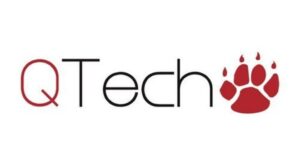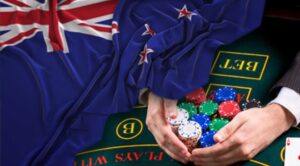Key Moments:
- The UK Treasury has reportedly dropped plans to unify betting and gaming duties, which could spare horse racing from the upcoming gambling tax rise.
- The British Horseracing Authority warned a unified duty could cost the sport more than £300 million over five years and eliminate over 2,700 jobs.
- While horse racing may remain protected, other gambling verticals, such as online casinos and betting-shop slot machines, are expected to see duties rise.
Background: Tax Hike Plans and Horse Racing’s Status
Reports suggest the UK government may scrap its plan to merge betting and gaming taxes — a proposal that would have raised costs for horse racing. Treasury officials have reportedly abandoned the plan ahead of Chancellor Rachel Reeves’s first Budget. Meanwhile, growing fiscal pressures have prompted speculation about tax increases in other sectors.
Markets reacted instantly to Reeves’s November 4 speech. Sterling hit its lowest level since April, and the FTSE 100 fell nearly one percent amid fears of a £30 billion gap. The key question remains why horse racing is seemingly excluded from the broader sector reforms.
Sector Exemption and Projected Impact
Plans to merge online gambling taxes under one Remote Betting and Gaming Duty would have reshaped the industry’s tax structure. Nevertheless, horse racing’s tax contributions remain at fifteen percent General Betting Duty, plus a ten percent Horserace Levy. This distinction could save horse racing an estimated £66 million per year and protect more than 2,700 jobs.
Projections illustrated a pronounced regional impact; Yorkshire alone was forecasted to lose £37 million and over 300 jobs in the initial year. The British Horseracing Authority had warned about the potentially dire consequences, stating that a unified tax rate of twenty-one percent or higher would drain the sector by over £300 million across five years. BHA Chair Lord Charles Allen described the now-abandoned proposal as “an existential threat to a heritage industry that contributes over £4 billion to the UK economy.”
| Measure | Current Rate/Impact | Potential Change |
|---|---|---|
| General Betting Duty (Horse Racing) | 15% | Unchanged |
| Horserace Levy | 10% | Unchanged |
| Remote Gaming Duty (Others) | 21% | Expected Increase |
| Machine Gaming Duty | 20% | Expected Increase |
Fiscal Pressures Driving Policy
During her November address, Rachel Reeves emphasized the need to respond to prevailing economic realities, signaling openness to new tax measures. Analysts from the Resolution Foundation and Goldman Sachs estimated that an additional £20-£25 billion in tax rises could be necessary, with some sources placing the budget deficit closer to £30 billion. Since manifesto pledges ruled out raising income tax, VAT, or National Insurance, the government appears poised to seek revenue from other areas such as sector-specific duties.
The combination of declining sterling and falling equities reflects larger anxieties about UK growth, influencing the urgency behind revenue-raising proposals that do not breach headline promises.
Horse Racing’s Defense and Political Strategy
The industry’s concerted lobbying effort played a pivotal role. In September, every British racecourse closed for a day in protest, and the #AxeTheRacingTax campaign garnered the signatures of 101 Labour MPs on an open letter to the Chancellor. Government officials described horse racing as integral to national culture, and private admissions acknowledged its importance to rural jobs, tourism, and local economies.
Industry advocates also maintained that betting on horses requires skill, differentiating it from online casino offerings and supporting their case for exemption. Safeguarding an industry employing more than 80,000 people, the government calculated, would avoid backlash while targeting newer, digital-driven gambling sectors.
Tax Rises to Target Other Gambling Sectors
Despite horse racing’s likely reprieve, the government still anticipates raising approximately £1 billion by focusing tax hikes on other gambling channels. Increases are anticipated for both Remote Gaming Duty (currently twenty-one percent) and Machine Gaming Duty (currently twenty percent).
Such measures sidestep Labour’s explicit tax commitments, focusing on industries outside their manifesto pledges. Major companies including Flutter, Entain, and Betfred have cautioned that even mild increases risk business closures and job losses. Research by EY-Parthenon for the Betting and Gaming Council suggested that aggressive increases could contract GDP by more than £3 billion and eliminate 40,000 jobs, while diverting £8 billion to unregulated operators.
Why the Unified Duty Was Dropped
The Treasury had launched a consultation in April to review harmonization of betting and gaming duties, arguing that remote gambling products shared sufficient characteristics for a unified rate. However, feedback closed in July, and by October, officials indicated waning momentum.
Racing stakeholders criticized the plan as overlooking key distinctions between betting and gaming, warning it would penalize an already heavily-levied sport. Reports now indicate the unification concept has been shelved, with insiders noting the political costs outweighed prospective earnings.
Winners, Losers, and Sector Response
For the racing industry, this development signifies a notable achievement, with the BHA viewing it as a testament to the power of coordinated action. Betting shops dependent on racing, and the regional economies they anchor, stand to benefit from a preserved status quo.
Conversely, online gaming businesses and casino suppliers brace for higher expenses and uncertainty. Some operators have put sponsorships and projects on hold; for example, Flutter Entertainment suspended a £1 million racing documentary, citing prevailing policy vagueness.
Budget Constraints and Political Calculations
Labour’s manifesto explicitly shields income tax, VAT, and National Insurance from hikes, but not gambling duties, giving Rachel Reeves flexibility. The Resolution Foundation forecasts at least a £26 billion gap under the current spending plan, with Reeves reiterating the need to prioritize national interests.
Targeting sector-specific taxes while sparing traditional industries demonstrates the government’s approach to balancing economic necessity with political risk management.
Next Steps: Awaiting the Autumn Budget
All eyes are now on the Autumn Budget scheduled for November 26, which will clarify the final scope of proposed tax adjustments. Horse racing’s exemption is not yet officially confirmed until the Chancellor’s forthcoming address.
Businesses across the sector are analyzing the likely ramifications on profit and customer pricing, with some planning to pass on costs and others reducing sponsorship and marketing efforts. Analysts warn that significantly higher taxes could drive consumers toward unlicensed or offshore gambling, undermining regulatory goals.
Industry groups continue to advocate for a balanced policy that raises needed revenue without destabilizing the market or reducing support for sports and communities.
Conclusion: A Temporary Victory?
Horse racing presently enjoys a reprieve, the product of effective industry lobbying and careful government calculation. However, the longevity of this exemption remains in question. As the Chancellor’s Budget approaches, the focus will be on whether selective tax strategies can deliver the required fiscal gains without damaging the broader gambling ecosystem. For horse racing, the outcome of this policy contest is still very much in play.
- Author


